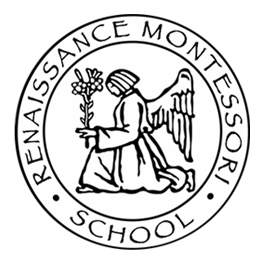Q1
What is the difference between Montessori and traditional education?
For children six and under, Montessori emphasizes learning through all five senses, not just through listening, watching, or reading. Children in Montessori classes learn at their own individual pace and according to their own choice of activities from hundreds of possibilities. They are not required to sit and listen to a teacher talk to them as a group, but are engaged in individual or group activities of their own, with materials that have been introduced to them by the teacher who knows what each child is ready to do. Learning is an exciting process of discovery, leading to concentration, motivation, self-discipline, and a love of learning. Above age six, children learn to do autonomous research by arranging field trips to gather information, interviewing specialists, and creating group presentations. They also engage in dramas, musical productions, science projects, story writing, and so forth. There is no limit to what they create in this kind of intelligently guided freedom. There are no text books or rigid schedules. There is great respect for the choices of the children and they easily keep up with or surpass what they would be doing in a more traditional setting. Through independent choice and exploration, children enjoy their work and study. The children observe each other, ask each other for lessons and much of the learning comes from sharing and inspiring each other instead of competing.
Q2
Why does Montessori have multi-age Classrooms?
Multi-age classrooms afford us the luxury of adapting the curriculum to the individual child. Each child can work at his or her own pace, while remaining in community with his or her peers. In addition, the multi age format allows all older children to be the leaders of the classroom community, even those children who may be shy or quiet. The guide also gets to know your child well in a three-year span.
Q3
Are Montessori children successful later in life?
Research studies show that Montessori children are well prepared for later life academically, socially, and emotionally. Montessori children are ranked above average on executive functioning skills such as following directions, organizing and articulating their thoughts, listening attentively, showing responsibility, asking provocative questions, showing enthusiasm for learning, and adapting to new situations. Here’s a few studies for further reading.
Montessori Preschool Elevates and Equalizes Child Outcomes: A Longitudinal Study
Does it Work? What Research Says About Montessori and Student Outcomes
Q4
Is Montessori a franchise? Who can open a Montessori school?
The term Montessori is not trademarked and anyone, regardless of training, experience or affiliation can open a “Montessori” school. It is essential that parents researching Montessori act as good consumers and do their research to ensure the authenticity of their chosen program.
Isn’t Montessori just a preschool?
Montessori schools may be best known for their programs with young children, but the underlying educational method describes programs for students up through high school.
Q5
Q6
Montessori classrooms don’t look like regular classrooms. Where are the rows of desks? Where does the teacher stand?
The different arrangement of a Montessori classroom mirrors the Montessori methods differences from traditional education. Rather than putting the teacher at the focal point of the class with children dependent on her for information and activity, the classroom shows a literally child-centered approach. Children choose to work at tables or on floor mats where they can spread out their materials, and the teacher circulates about the room, giving lessons, inspiring and engaging learners, or resolving issues as they arise.
Q7
Since Montessori classrooms emphasize non-competitiveness, how are students adequately prepared for real-life competition later on?
Montessori classrooms emphasize competition with oneself: self-monitoring, self-correction, and a variety of other executive skills aimed at continuous improvement. Students typically become comfortable with their strengths and learn how to address their weaknesses. In older classes, students commonly participate in competitive community activities with clear “winners” (auditions for limited play roles, a spelling bee, math fact games, etc.) in which students give their best performances while simultaneously encouraging peers to do the same. It is a healthy competition in which all contenders are content that they did their best in an environment with clear and consistent rules.
Q8
Are Montessori schools as academically rigorous as traditional schools?
Yes; Montessori classrooms encourage deep learning of the concepts behind academic skills rather than rote practice of abstract techniques. The success of our students appears in the experiences of our alumni, who compete successfully with traditionally educated students in a variety of high schools and universities.
